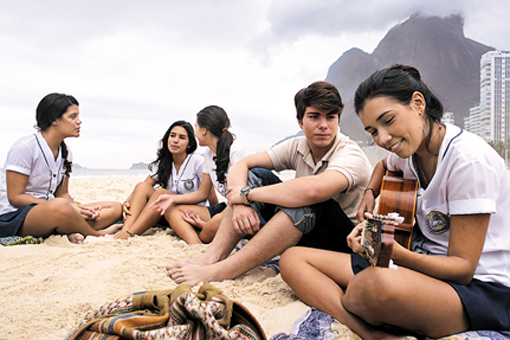In the locker room of his private, all boys high school, 17-year-old Jean bickers with his classmates over an unpaid debt. “Like father, like son,” says one of Jean’s friends before the boys collide in a classic locker-room brawl. It’s an emotional and revealing scene in Casa Grande (literally “the big house,” but released under its English title, The Ballad of Poor Jean), which examines class hierarchy and race in Brazil.
The plot focuses on Jean, the son of an upper-class Carioca family in Rio de Janeiro that is facing bankruptcy following the failure of his father’s hedge fund. Even as Jean’s overprotective parents try to shield their children from their economic troubles, he is gradually exposed to life outside his privileged community, eventually falling in love with Luiza, a mixed-race girl he meets on the bus. Luiza quickly becomes a foil for Jean’s European immigrant family and the subject of a heated discussion on the recently adopted race-based quotas in Brazilian universities.
Casa Grande is also personal for Brazilian filmmaker Fellipe Barbosa, whose own family went bankrupt in 2003 while he was completing his MFA at Columbia University. “I resented the fact that I wasn’t present, so writing the script was a therapeutic way of correcting the absence. I tried to imagine myself with my family during this time,” says Barbosa.
Debuting at the Tiger Competition at the Rotterdam Film Festival in January 2014, Casa Grande has since been screened at over 30 festivals, winning 11 awards. The film will be distributed by Imovision in Brazil, where it is expected to be released this March.





